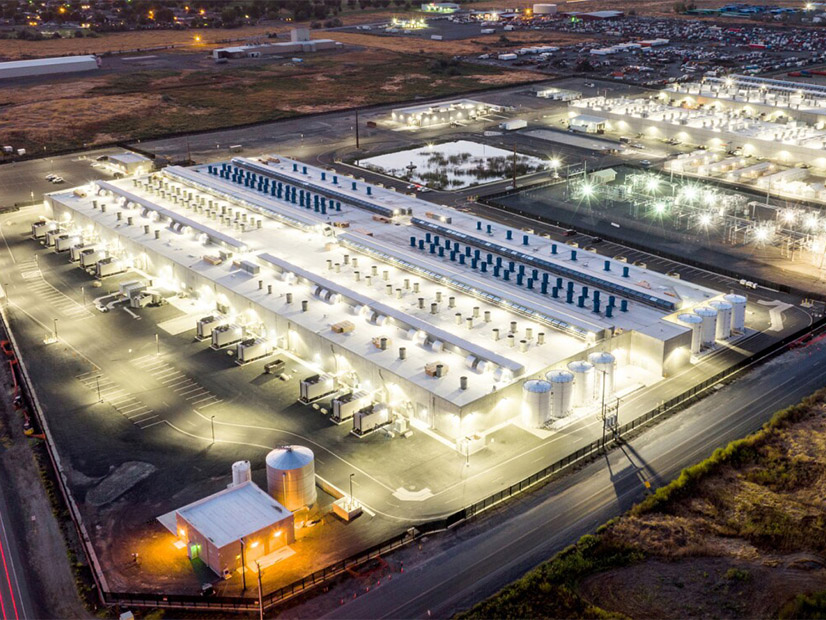
Collaboration among stakeholders is crucial to maintaining Western grid reliability in the face of increasing demand posed by large loads such as new data centers, speakers said Sept. 4 during a webinar hosted by WECC.
Representatives from Elevate Energy Consulting, the Pacific Northwest Utilities Conference Committee (PNUCC) and the Grant County Public Utility District in Washington participated in the webinar. The panelists discussed the challenges of integrating large loads in the Western Interconnection.
According to PNUCC’s Northwest Regional forecast for 2024, electricity demand is projected to increase from approximately 23,700 average MW in 2024 to about 31,100 aMW in 2033, an increase of over 30% in the next 10 years.
“That is an increase of 7,000 average MW, or enough electricity to power seven cities the size of Seattle,” said Crystal Ball, PNUCC’s executive director. She noted the increase in demand is primarily from three things: data center development, high tech manufacturing growth and electrification.
“But really, we see it coming from these companies developing large data centers in the Pacific Northwest,” Ball added.
Grant County has been dealing with the increase in large loads for some time, according to Shane Lunderville, business development manager for the county’s publicly owned utility.
“We’ve had data centers for the last 10 years and a lot of growth that has not stopped,” Lunderville said. “We have averaged in just industrial growth between 5 to 7% per year of that growth, and we’re not seeing it slow down.”
Ball said the increased demand for electricity is a sign of economic growth opportunities. However, it also poses significant reliability challenges, such as integrating large loads while adhering to efforts to reduce carbon emissions.
“One misstep really could lead to cascading consequences,” according to Ball. “It’s really the reliability of the power system that is at risk during this transition while meeting this increasing demand for electricity.”
She added that stakeholders must work collaboratively and focus on proactive solutions.
Kyle Thomas, vice president of compliance services at Elevate Energy Consulting, agreed, saying that “all parties have to be at the table.”
“Doing one thing on the grid actually involves many different departments … because it’s so interconnected, it’s so involved, and the data centers is no exception,” Thomas said. “So, we need policy, we need regulatory, we need legal, we need the engineers.”
However, according to Thomas, one issue is that data centers often have strict confidentiality rules due to the competitive space between different developers. This makes it difficult to study how to best integrate data centers while ensuring reliability, he said.
“We should still start and try and figure out where our gaps of knowledge are and partner with them to get information, get data, get models, and then learn from these real operations with monitoring data and get that cycle as fast as possible,” Thomas said.
The U.S. also could learn from other countries that have successfully brought on data centers while ensuring the reliability of the grid, according to Thomas.
“You look at Ireland and their adoption of data centers is unbelievable,” he noted. “You look at the [European Union], they have had interconnection requirements in place and policies for large loads since about 2009. We can learn from others in the collective global industry here to learn and accelerate our knowledge where it may be lacking, and we can also help others in that aspect.”



